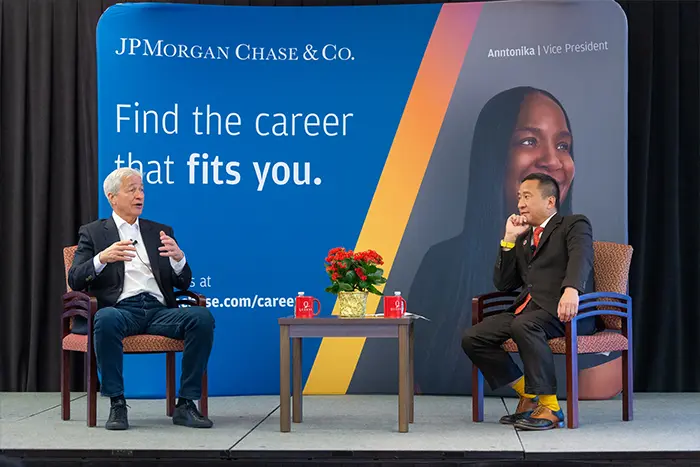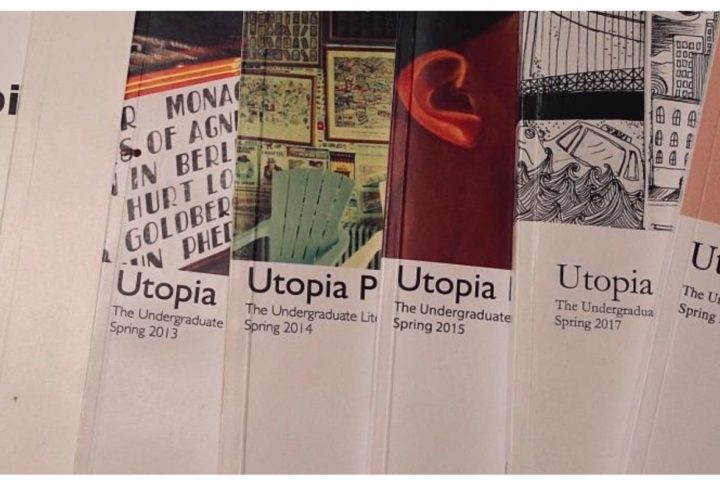A media studies professor, business professor, and philosophy professor walk into a bar… sounds like the beginning of a joke, right? Wrong. Everyone knows professors aren’t funny. In fact, they have no idea what we go through—that we have other classes, that our credits didn’t transfer, that we’re stuck here an extra semester. Oh, and we really don’t appreciate it when they call on us when clearly ours hands weren’t raised. Wouldn’t it be easier if our professors knew what we go through?
Joke’s on us. They do. And they have a couple of things they want us to know about them, too. And unlike those “walk into a bar” jokes, their answers aren’t predictable, corny, or calculated. They’re genuine and candid, no matter what they scored on RateMyProfessors.com
Speaking of which, how would you feel if professors had RateMyStudents.com and were able to judge you off of 350 characters and whether or not you had a colored-in jalapeno? (But that’s a whole other story.) I had the pleasure of interviewing three professors a few questions, ranging from how many times they looked themselves up on that notorious website, how they used to study when they were in college, and if they purposefully put trick questions on their tests (and how to master them). Today, media studies professor, Matthew Crain, will be discussed. Known for both his sarcasm and sensitivity, deliberate placement of memes on slideshows for comic relief and a no-technology policy in a class about technology. No, the man is not a walking contradiction, but rather a complex character with a simple agenda: to create a class as quick as his response time. This is what Professor Crain wishes his students knew about him:
Melissa D’Angelo: How were you as a student, and do you keep the tricks you used back then in mind when you teach?
Matthew Crain: I used to cram all the time… I would study super hard… do well on the test, generally, and then forget all of it afterwards. It definitely comes in handy when I give advice to students on how NOT to study.
MD: Do you put in trick questions on purpose?
MC: Yes. [He laughs.] Because you have to separate out different levels of questions. C level questions mean that if you’re breathing, you’re there, you should probably be able to do it. B level is a little bit harder than that, and A level questions separates whether you read the question carefully and can you differentiate what is right and what seems right. One of the ways I do that is with language tricks.
MD: What’s one of your most embarrassing moments teaching?
MC: It’s pretty embarrassing when a student calls you out on something. Like, I have a memory, and sometimes it’s wrong.
MD: Has anyone ever told you ‘Those who can do, and those who can’t teach?’ What do you think of that?
MC: I think it’s *insert cuss word of choice*, and you can quote me on that. We are often disrespected, overworked and criticized. We’re highly underpaid, for the most part… It’s very easy to put another profession down, until you realize its importance.
MD: What do you wish students knew about majors?
MC: I think the specifics of the words on your diploma matter less than whether you have a decent GPA, can write and can get a good internship.
MD: Have you looked up yourself on RateMyProfessor before?
MC: Yes. RateMyProfessor is awful…Do you care about that website?
MD: That’s how I choose all my classes.
MC: I feel like a lot of students do that – and it doesn’t make any sense. You want to know why? Think about who rates a professor. Either they’re really pissed and want to get revenge, or they’re just a malicious person. Or, they really like them a lot, so you don’t get any middle ground. You’re also more likely to leave a review if you’re pissed. It’s not a good representation. And, why do you only want a professor if they’re easy? What if you found a review that said this professor was really challenging, but really good? I just hate for that to be a vehicle to send students to easy professors.
MD: Is there such a thing as a stupid question?
MC: Yes. But if you ask a stupid question, it doesn’t mean you’re a stupid person.
MD: How do you measure the success of your class?
MC: If no one’s crying at the end of the day…If I feel like students have gone from point A to point B in some capacity, some kind of transformation, that’s successful for me.
MD: What’s one thing you wish your students knew about you?
MC: I know people have jobs and that it’s hard to get into the space and get into the mindset. Learning can’t be thrown at you. I hope that they can come in and approach it as a practice, a meeting of the minds, an opportunity to engage. It’s hard because I’m a cynical person and it’s tough to strip off the cynicism. People feel sheepish or silly if they’re being earnest ever, but sometimes that’s what you need to do.
MD: What has teaching at QC taught you?
MC: This school has taught me tons, like who the students are, what New York is about. I really like the students here for the most part. Except for the ones who come into my office and ask me a bunch of questions on tape.
Touché.













